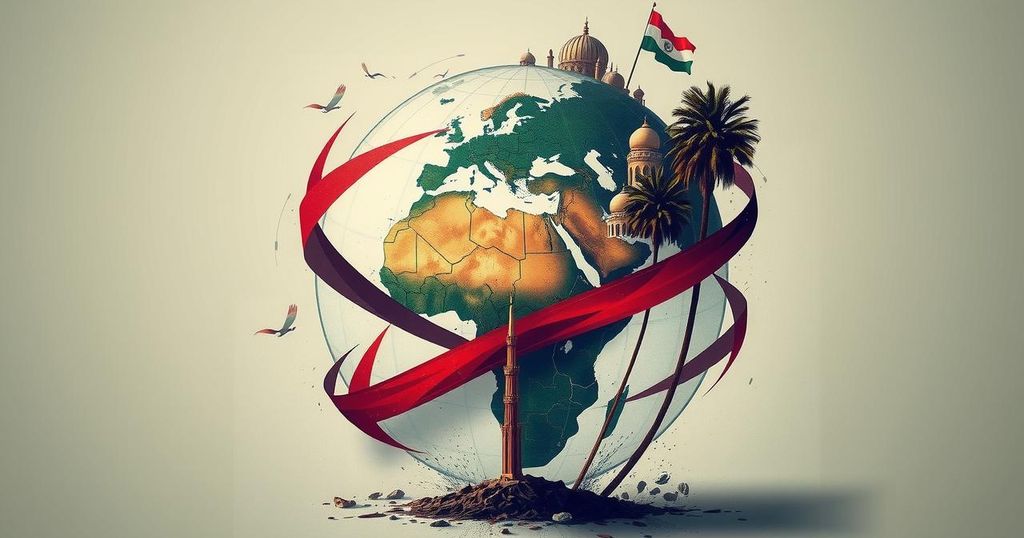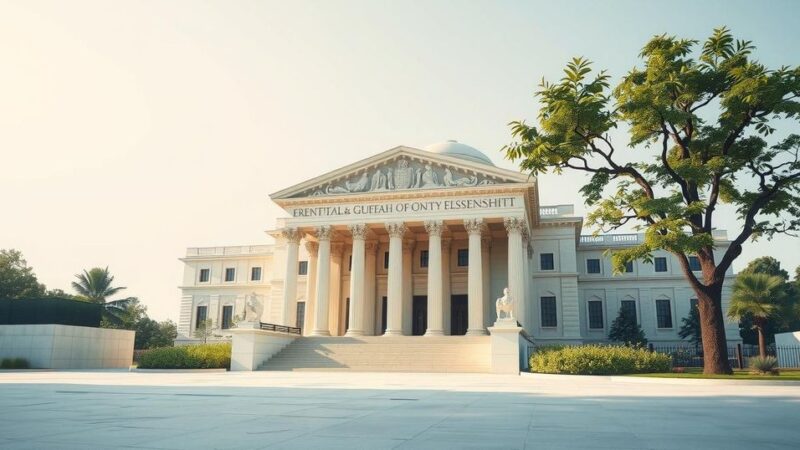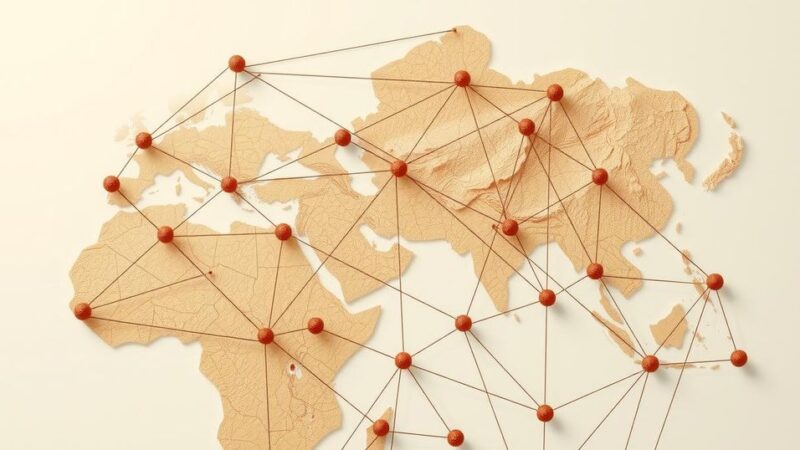Ahmed al-Sharaa, Syria’s interim President, has made recent visits to Turkey and Saudi Arabia, navigating a delicate balance between these two regional powers. Turkish President Erdogan expressed commitment to aiding Syria’s reconstruction, while analysts caution about the extent of Ankara’s influence. Sharaa’s actions suggest a pragmatic approach to international relations amidst a competitive landscape, as Syria seeks diverse alliances for its future.
Interim President of Syria, Ahmed al-Sharaa, has embarked on a diplomatic mission by visiting Ankara shortly after a trip to Saudi Arabia. This maneuver is seen as an effort by Sharaa to balance the influences of these two regional powers amid escalating competition for sway over Syria’s future. Turkish President Recep Tayyip Erdogan warmly welcomed Sharaa, emphasizing the importance of their meeting in forging a lasting friendship between their nations. Erdogan affirmed Turkey’s commitment to supporting Syrian reconstruction efforts.
Sharaa acknowledged Turkey’s significant contributions, recognizing the tangible aid that has bolstered Syria’s political and economic stability while affirming its sovereignty. Historically, Sharaa has maintained strong ties with Turkey, largely due to Turkish support during the conflict against the Assad regime. Former Turkish diplomat Aydin Selcen remarked that Ankara’s hosting of over five million Syrian refugees has positively influenced Sharaa’s perspective on Turkish assistance.
Even as the Syrian leader received a rousing reception in Ankara, Selcen warned against Ankara’s potential overestimation of its influence on Syria’s policies, asserting that the essential direction of Syria’s future will rest with Damascus. Following a lengthy meeting, the leaders made vague commitments regarding security and cooperation without detailing concrete plans. Interestingly, Sharaa chose to visit Saudi Arabia first, reflecting the significance of relations with Riyadh, Turkey’s regional competitor.
Professor Huseyin Bagci noted that Sharaa’s Arab nationalist identity may foster divergence from Turkish interests in the long term. In the broader context, as Saudi Arabia and Turkey vie for supremacy among Sunni Arab states, Turkey faces challenges due to its struggling economy compared to the financial resources of Saudi Arabia.
Sharaa is anticipated to adopt a pragmatic approach in negotiations with various stakeholders, including Russia. Experts point out that Turkey’s military presence in Syria could create tensions, particularly in context to its operations against Kurdish forces. Iran, too, appears to be repositioning itself to engage constructively with the new Syrian leadership.
Turkey has valuable expertise in sectors relevant to Syria’s rebuilding efforts, including construction and security, yet experts caution that competition for influence in Damascus may become pronounced as Syria seeks broader alliances post-conflict.
The article discusses the diplomatic relations and power dynamics between Syria and two key regional powers – Turkey and Saudi Arabia. Following the civil unrest in Syria, political leaders from differing backgrounds have emerged, and their interactions reflect a balancing act as they navigate alliances. The efforts of the interim Syrian president to establish a foothold with both Ankara and Riyadh showcase the complexities of international relations in the region, especially concerning support for reconstruction and counterterrorism efforts.
In conclusion, Ahmed al-Sharaa’s diplomatic engagements illustrate the delicate balancing act of Syria’s emerging leadership amidst regional rivalries. While Turkey remains a significant ally, the relationship is complicated by the influence of Saudi Arabia and the varied interests of other actors like Iran and Russia. As Syria looks to rebuild, its leaders will likely pursue a multifaceted approach to strengthen ties while asserting their sovereignty.
Original Source: www.rfi.fr






